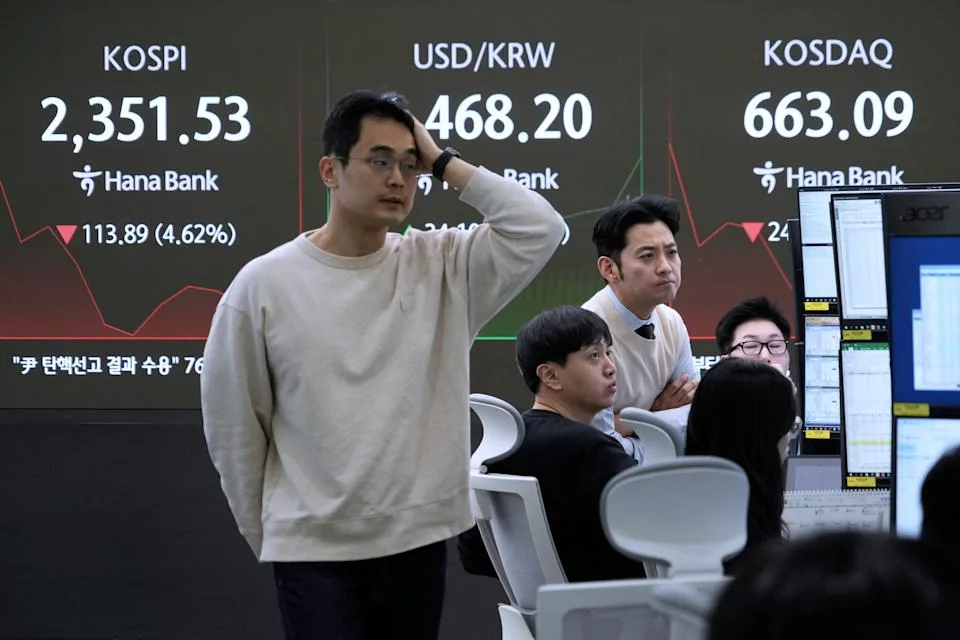Asian markets experienced their worst decline in decades when US President Donald Trump announced extensive new tariffs that triggered panic among global economic systems on April 7, 2025.
The stocks in Shanghai and Tokyo, together with Sydney and Hong Kong, experienced historic drops in value, reaching unprecedented depths since analysts labelled this event a “bloodbath” during the looming global trade war.
Chinese markets experienced their largest single-day decline as the Shanghai Composite fell 8.1% during its peak decline, while the Hang Seng dropped 13.3% in Hong Kong and the Nikkei 225 lost 7.8% in Japan.
The Taiwanese market experienced its biggest ever market decline when it lost 9.7% during this period. South Korean stocks, along with Australian stocks, took major hits during these market fluctuations as the Kospi dropped 5.6% while the ASX 200 declined by 4.2%.
Asian stock prices experienced their sharpest drop following the worldwide market erosion caused by Trump’s implementation of trade tariffs on multiple foreign imports.
To that effect, Asian manufacturers face major challenges because their export operations to the United States are being hurt by the wide range of tariffs between 10% and 46%.
The import taxes reaching up to 46% will hit developing economies such as Vietnam, Cambodia, and Thailand as Japan together with South Korea must pay 26% imports duty rates.

China faces one of the most severe impacts from these trade restrictions because its expected tariff rate reaches 54%. The new import tariffs function as part of Trump’s trade imbalance strategies and generate substantial economic damage to Asian nations because they depend heavily on US markets for their product exports.
The region faces predicted long-term economic effects because of these implemented tariffs. In effect, Vanguard’s Asia Pacific chief economist, Qian Wang, states that Asia faces the major impact from the US tariff increase. The new higher tariff system maintains its current state and will persist despite potential negotiation possibilities.
READ ALSO: Gyinyase: Fire destroys home, kills mother and three kids
Stock market declines represent one aspect of an extensive international problem. Analysts currently warn that the trade war has high potential to create regional and American recessions.
Goldman Sachs now predicts a 45% probability of a US recession within the next 12 months, as their previous prediction was at 35%. Major banking institutions such as JPMorgan and others now present revised economic projections because they expect this downturn to become even worse.
The new trade measures have begun impacting Vietnam and Bangladesh particularly hard because the United States makes up a large share of their export activity. The manufacturing facilities of Nike and Lululemon operate in Vietnam and Bangladesh and maintain an annual export revenue stream of billions from garments sent to the United States. The economies face an uncertain future as the tariffs keep increasing in value.








